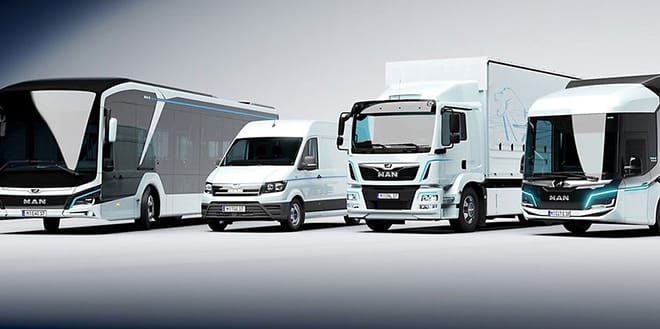The Rise of EV Adoption in the Commercial Sector.
There has been a notable rise of electric vehicles in the commercial sector. This is a result of the combination of environmental concerns, technological advancements, and economic incentives.


There has been a notable rise of electric vehicles in the commercial sector. This is a result of the combination of environmental concerns, technological advancements, and economic incentives.
It started with the delivery vans and trucks to now buses and taxis, businesses and organizations around the world are increasingly turning to electric vehicles as a sustainable and cost-effective solution for their transportation needs.
Read: Roam launches its first electric bus.
One of the primary drivers behind the adoption of electric vehicles in the commercial sector is the growing awareness of the environmental impact of traditional gasoline and diesel-powered vehicles.
With mounting concerns over air pollution, greenhouse gas emissions, and climate change, businesses are under increasing pressure to reduce their carbon footprint and embrace cleaner alternatives.
Electric vehicles offer a zero-emission transportation solution that helps companies meet sustainability goals and demonstrate their commitment to environmental stewardship.
Read: How and where to catch an electric bus.
Moreover, technological advancements in battery technology and electric drivetrains have made electric vehicles more practical and cost-effective for commercial use.
Improvements in battery energy density, charging speed, and vehicle range have addressed many of the concerns that previously hindered the widespread adoption of electric vehicles in the commercial sector.
Today, electric delivery vans, trucks, and buses offer comparable performance and reliability to their fossil fuel-powered counterparts, making them a viable option for businesses of all sizes.
In addition to environmental benefits, electric vehicles offer compelling economic advantages for businesses operating in the commercial sector.
While the upfront cost of purchasing electric vehicles may be higher than that of conventional vehicles, businesses can realize significant savings over the long term through lower fuel and maintenance costs.
Electric vehicles have fewer moving parts and require less frequent servicing compared to internal combustion engine vehicles, resulting in reduced downtime and lower operating expenses for businesses.
Furthermore, government incentives and regulations play a crucial role in driving the adoption of electric vehicles in the commercial sector.
Many governments offer financial incentives, such as tax credits, rebates, and grants, to encourage businesses to invest in electric vehicles and charging infrastructure.
Related: Buyer's guide on buying electric motorcycles.
Additionally, regulatory measures such as emissions standards, vehicle electrification targets, and mandates for zero-emission vehicle purchases incentivize businesses to transition away from fossil fuel-powered vehicles and embrace electric alternatives.
The adoption of electric vehicles in the commercial sector is not limited to delivery and transportation fleets.
Electric buses are gaining traction in urban transit systems, offering a clean and quiet alternative to traditional diesel buses.
Read: VW e-Bulli Bus
Likewise, electric taxis and ride-hailing services are becoming increasingly common in cities around the world, providing passengers with a sustainable and eco-friendly transportation option.
Looking ahead, the future of electric vehicle adoption in the commercial sector looks promising.
As battery technology continues to improve and economies of scale drive down costs, electric vehicles are expected to become even more competitive with conventional vehicles in terms of price, performance, and range.
Related: New Daily Electric Mini Bus
With ongoing support from governments, technological innovation, and increasing consumer demand for sustainable transportation solutions, electric vehicles are poised to play a central role in the transformation of the commercial transportation sector towards a cleaner, greener future.




